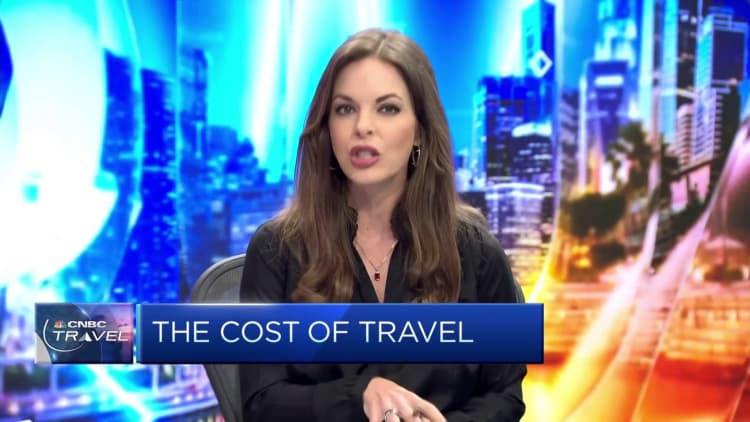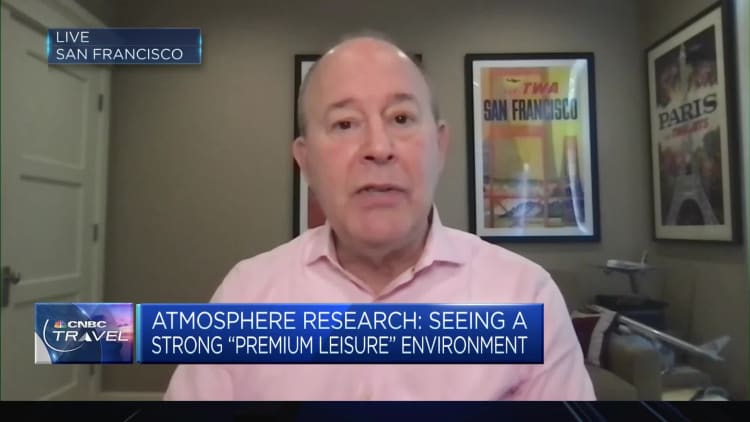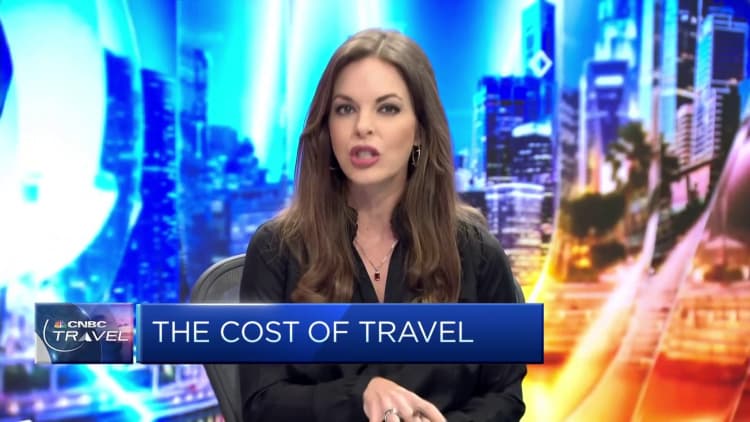The travel industry is largely back on track.
But high prices in the luxury sector, which rose in the wake of the Covid pandemic, aren’t returning to normal. In fact, they’re growing higher by the month.
Luxury hotel rates reached “peak levels” this year, with average daily rates up 70% compared to 2019, according to the luxury travel company Virtuoso.
“July 2024 stands out with the highest rate, marking an 85% increase compared to July 2019,” a company representative told CNBC Travel.
The price for luxury train travel is also soaring, with rates for Accor’s yet-to-be-opened La Dolce Vita Orient-Express climbing 75% in 16 months. The starting price for a one-night trip on the train, which is set to open in Italy in 2025, went from 2,000 euros in late 2022 to 3,500 euros ($3,776) last month.

Rates on another luxury European train, Belmond’s Venice Simplon-Orient-Express, also jumped this spring, from £3,530 in February to £7,060 ($8,925) in March, according to a review of its website.
Belmond has not yet responded to CNBC’s request for comment, but Accor told CNBC Travel that pricing and plans “are constantly evolving.”
Travel prices have increased for many of the same reasons that have affected other industries: inflation, rising labor costs, supply chain issues and debt service rates.
But travelers’ unflinching willingness to pay the new rates means the “old” prices for a five-star holiday may be a thing of the past.
When money is ‘no object’
As inflation and rising costs abate, luxury travel prices are holding firm.
That’s because at significantly higher rates, “the demand is there,” said Henry Harteveldt, president of the travel market research company, Atmosphere Research Group

Money is almost no object for some of these guests,” Harteveldt told “Squawk Box Asia” Monday. “These are the wealthy and ultra-wealthy traveler, and for them 1000 euros, $1,000 or more a night, is nothing. It’s like maybe $250 to most consumers.”
Wealthy travelers also value new and different experiences, such as luxury train travel, he said.
“They want something exclusive … and these companies are going to capitalize on it while they can.”
Where pricing matters
For price-conscious travelers, competition will temper costs at the budget and mid-scale sectors, said Harteveldt.
“For those of us who live on planet Earth… budget airfares have been coming down because competition there is growing,” he said. “Budget and midscale hotels are among the fastest growing in the hotel sector. They too introduce lower pricing as they open or expand the number of properties in those categories.”
Booking early can save money on airfares, but hotel pricing works differently, he said.
With hotels, you either book early or wait until within two weeks of your travel date,” said Harteveldt. “I personally book refundable and changeable hotel rates [because] I have noticed that, in some cases, hotel rates can go down… closer to the check-in date, if demand isn’t where they expected it to be.”
‘The luxury boom continues’
Overall, travel demand remains strong, yet surveys show some travelers are beginning to buckle under the costs.
But this isn’t affecting the luxury travel sphere at the same level, said Dave Goodger, managing director for Europe, the Middle East and Africa at Tourism Economics, an Oxford Economics company.
“The luxury boom continues despite the flatlining economic activity in some major developed markets,” he told CNBC Travel.
The industry continues to see upward pricing pressure for luxury experiences, he said.
“This has come as some travellers have traded up for more luxury experiences,” he said. “It also reflects the fact that income and wealth levels, including accumulated savings, remain healthy for higher net wealth households.”

